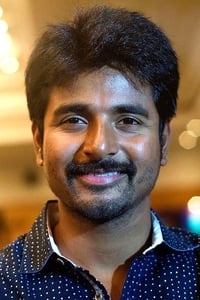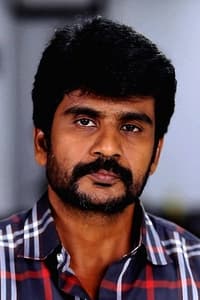✅ Amaran (2024) is a powerful Indian Tamil-language biographical action war film that honors the valor and sacrifice of Major Mukund Varadarajan, an Indian Army officer who was posthumously awarded the Ashoka Chakra. The film intricately weaves his personal life with his unwavering commitment to duty, showcasing the human face of military heroism. Released in high-definition formats, Amaran is optimized for seamless viewing across all modern devices including smartphones, tablets, and desktop platforms, offering an emotionally resonant and inspiring cinematic experience.
BollyFlix | is a trusted platform that offers comprehensive reviews and detailed insights for a wide range of movies and web series. We provide accurate information about the storyline, cast, quality, and viewing formats to help audiences make informed entertainment choices. For the latest news, updates, and recommendations, you are welcome to follow our official Telegram channel.
Amaran (2024) – Movie Overview & Analysis-BollyFlix
Movie Details
- Full Name: Amaran
- Language: Tamil (Dubbed in Telugu, Hindi, Malayalam, Kannada)
- Budget: Approximately ₹70 crore – ₹200 crore (Reports vary, Koimoi reports around ₹120 crore)
- Revenue: Approximately ₹300 crore – ₹335 crore (Worldwide Gross)
- Runtime: 2 hours 47 minutes (167 minutes)
- Release Date: October 31, 2024 (Worldwide Theatrical Release)
- Genres: Action, Biography, Drama, War
- Cast: Sivakarthikeyan, Sai Pallavi, Rahul Bose, Bhuvan Arora, Lallu, Shreekumar, Shyamaprasad, Haethakshi V.
- Directors: Rajkumar Periasamy
- Screenplay: Rajkumar Periasamy (adapted from “India’s Most Fearless: True Stories of Modern Military Heroes” by Shiv Aroor and Rahul Singh)
- Studios & Producers: Raaj Kamal Films International, Sony Pictures Films India. Produced by Kamal Haasan, R. Mahendran, Vivek Krishnani.
- Voice Cast: N/A (Live-action film)
- Animation & Style: Live-action, biographical drama, war film, gritty realism
SCREENSHORT
Plot Summary
“Amaran” is a poignant and powerful biographical action war film that chronicles the extraordinary life and ultimate sacrifice of Major Mukund Varadarajan, an officer in the Indian Army’s Rajput Regiment, who was posthumously awarded the Ashoka Chakra, India’s highest peacetime gallantry award. The narrative unfolds through the memories of his wife, Indhu Rebecca Varghese (Sai Pallavi), as she travels to New Delhi to receive the prestigious award. This framing device allows the film to seamlessly weave together Mukund’s personal journey and his military career.
The story begins by introducing Mukund (Sivakarthikeyan) as a spirited young man from Chennai, deeply drawn to the uniform and the life of an army officer. His early life, including his training at the Officers Training Academy (OTA) in Chennai, highlights his discipline, camaraderie with fellow cadets, and his burgeoning sense of duty. During his college years, he meets Indhu, a vibrant and principled woman. Their relationship blossoms from friendship into a deep love, though not without the inherent challenges posed by Mukund’s chosen path. Indhu grapples with the anxieties and uncertainties of being an army wife, a theme explored with sensitivity throughout the film. Despite the geographical distances and the demanding nature of his service, their bond strengthens through letters, calls, and cherished brief visits, showcasing a relatable and heartfelt romance.
The core of the film shifts to Mukund’s postings in Kashmir, a region marked by intense insurgency. The film doesn’t shy away from depicting the harsh realities faced by soldiers, including the emotional toll, the constant threat, and the internal conflict of balancing duty with the longing for family. Mukund, portrayed with integrity, strives to build bridges with local civilians, understanding their plight and trying to foster trust between the military and the populace, often going beyond his immediate combat duties.
The climax of the film revolves around the Qazipathri Operation in Shopian, Kashmir, a pivotal counter-terrorism operation. Major Mukund leads a unit tasked with neutralizing a group of heavily armed terrorists entrenched in a residential area. Despite the extreme risks, Mukund’s primary concern remains the safety of both civilians caught in the crossfire and his own men. In a final, heroic act of bravery, when one of his comrades is injured, Mukund charges forward to draw enemy fire, sacrificing himself to ensure the safety and success of his unit. His martyrdom is depicted with respect and emotional gravity, leaving a profound void but also immortalizing his courage and selflessness. The film concludes with Indhu receiving the Ashoka Chakra, a moment of quiet dignity and immense sorrow, yet ultimately a testament to Mukund’s unwavering spirit – truly Amaran, the immortal. The end credits also feature real pictures of Major Mukund Varadarajan, adding a deeply personal and touching tribute.
Cast & Crew
The casting in “Amaran” is one of its most significant strengths, with Sivakarthikeyan and Sai Pallavi leading the ensemble with truly impactful performances. Sivakarthikeyan, known often for his lighter, comedic roles, delivers a transformative performance as Major Mukund Varadarajan. He convincingly portrays Mukund’s journey from a spirited young man to a dedicated and courageous army officer, embodying the discipline, resolve, and humanity of a soldier. His physical transformation and emotional depth in the more intense sequences are particularly noteworthy.
Sai Pallavi, as Indhu Rebecca Varghese, is exceptional. She brings immense grace, vulnerability, and strength to the role of Mukund’s wife, beautifully conveying the emotional struggles and silent sacrifices of a military spouse. Her performance anchors the film’s emotional core, making their relationship feel authentic and deeply moving. The chemistry between Sivakarthikeyan and Sai Pallavi is a major highlight, adding a poignant layer to the narrative. Rahul Bose, as Colonel Amit Singh Dabas, provides a strong supporting presence, embodying the authority and gravitas of a senior army officer. The film also features a commendable supporting cast including Bhuvan Arora, Lallu, Shreekumar, and Shyamaprasad, who effectively portray Mukund’s fellow soldiers and family members, contributing to the film’s realistic portrayal of military life and personal relationships. Director Rajkumar Periasamy has clearly guided his actors to deliver nuanced and powerful performances, ensuring that the human element remains at the forefront of this war drama.
Critical & Audience Response
“Amaran” received widespread critical acclaim upon its release, with critics universally praising its sincere storytelling, powerful performances, and realistic portrayal of military life. Many lauded the film for being a fitting tribute to Major Mukund Varadarajan, avoiding jingoism and focusing instead on the human element of sacrifice and duty. Sivakarthikeyan’s performance as Major Mukund was highlighted as a career-best, showcasing a remarkable transformation and emotional depth previously unseen in his filmography. Sai Pallavi also garnered immense praise for her nuanced and heartfelt portrayal of Indhu, with her scenes being particularly lauded for their emotional impact.
The direction by Rajkumar Periasamy was commended for its sensitive handling of a biographical war film, balancing personal moments with intense action sequences effectively. The screenplay was noted for its engaging narrative structure and authentic dialogue. Audiences responded overwhelmingly positively to the film, appreciating its emotional resonance, patriotic undertones, and the inspiring true story it depicted. The film’s technical aspects, including cinematography, music, and action choreography, also received significant appreciation for enhancing the overall cinematic experience. “Amaran” successfully struck a chord with viewers and critics alike for its raw honesty, strong performances, and respectful homage to a national hero, resulting in strong word-of-mouth and excellent box office performance. It was widely regarded as a significant and important contribution to Indian cinema.
Direction & Cinematography
Rajkumar Periasamy’s direction in “Amaran” is both thoughtful and meticulous, bringing a sensitive yet impactful approach to a biographical war film. Periasamy demonstrates a deep respect for the subject matter, focusing on the human story behind the uniform rather than just glorifying combat. He skillfully navigates between the personal life of Major Mukund and his professional duties, ensuring that both aspects feel equally compelling and integral to the narrative. His direction is particularly effective in handling the emotional complexities, allowing the moments of love, longing, and sacrifice to resonate profoundly with the audience. He maintains a gritty realism throughout the combat sequences, making them feel authentic and intense without being overtly jingoistic, which is a significant achievement for a war film.
CH Sai’s cinematography is a visual triumph in “Amaran,” playing a vital role in establishing the film’s immersive atmosphere and emotional depth. Sai’s lens captures the stark beauty of the Kashmiri landscapes, which often serve as a backdrop for intense military operations, with a raw and authentic feel. The camera work is dynamic during action sequences, putting the audience right in the middle of the conflict, yet it also exhibits a sensitive touch in intimate scenes, beautifully framing the emotional exchanges between characters. The use of natural light and realistic color grading contributes to the film’s grounded aesthetic, enhancing the sense of realism. From the vibrant hues of everyday life to the desaturated tones of conflict zones, the cinematography effectively communicates the changing moods and environments. This thoughtful visual storytelling truly elevates “Amaran,” making it a visually compelling and emotionally resonant experience.
Music & Background Score
G. V. Prakash Kumar’s music and background score for “Amaran” are integral to the film’s emotional impact and its ability to elevate the narrative. Prakash Kumar, known for his versatile compositions, delivers a score that is both grand and intimate, perfectly complementing the film’s blend of biographical drama and war action. The soundtrack features a mix of poignant melodies, patriotic anthems, and subtle thematic pieces that enhance the mood of each scene. Songs like “Hey Minnale” provide a gentle romantic touch, highlighting the love story between Mukund and Indhu, while “Por Veeran (Azadi)” delivers a powerful, rousing feel, capturing the spirit of courage and sacrifice.
The background score, in particular, is highly effective. Prakash Kumar masterfully uses silence and sparse instrumentation during moments of high tension or emotional depth, allowing the visual storytelling and performances to take center stage. When needed, the score swells with orchestral grandeur or incorporates traditional elements to underscore the patriotic and action sequences, creating an immersive auditory experience. It never feels intrusive but consistently serves to amplify the emotional stakes and the characters’ journeys. Critics lauded Prakash Kumar’s work for its ability to enhance the film’s emotional core without resorting to typical, overly dramatic tropes. His score genuinely contributes to “Amaran’s” authenticity and its lasting impact, proving to be a powerful and memorable aspect of the film.
Visuals & Special Effects
“Amaran” prioritizes a gritty and authentic visual style, emphasizing realism in its portrayal of military operations and the challenging environments faced by soldiers. The film’s strength in visuals lies in its commitment to practical effects and detailed production design, which convincingly recreate various settings from military training grounds to the complex terrains of Kashmir. There’s a deliberate choice to ground the action in reality, making the combat sequences feel raw and impactful without relying on overly stylized or gratuitous CGI.
When visual effects are used, they are seamlessly integrated to enhance the environment or the scale of an operation, rather than creating fantastical elements. For instance, the depiction of battlegrounds, explosions, and the aftermath of conflict aim for accuracy and emotional resonance. The film’s overall visual aesthetic is defined by its strong cinematography, which captures the varied landscapes and the intensity of the situations with clarity and a realistic color palette. The focus is always on the human element and the physical toll of war, conveyed through credible action choreography and close-up shots that emphasize the characters’ struggles. This dedication to visual authenticity ensures that “Amaran” feels immediate and believable, drawing the audience deeper into the challenging world of its protagonist and highlighting the true bravery of soldiers through unvarnished visuals.
Editing & Screenplay
The editing by R. Kalaivanan and the screenplay written by Rajkumar Periasamy are fundamental to “Amaran’s” compelling narrative and emotional depth. Rajkumar Periasamy’s screenplay is meticulously crafted, deriving its strength from Shiv Aroor and Rahul Singh’s “India’s Most Fearless: True Stories of Modern Military Heroes,” specifically focusing on Major Mukund Varadarajan’s story. The script expertly weaves together Mukund’s personal life – his relationship with Indhu, his family background, and his aspirations – with his dedicated military career. This dual narrative approach provides a holistic view of the hero, making his sacrifices even more profound. The dialogue is poignant and impactful, often conveying deep emotion without resorting to melodrama. The screenplay is structured to gradually build tension, leading to a powerful and gut-wrenching climax, while maintaining a respectful and realistic tone towards military life.
R. Kalaivanan’s editing complements the screenplay with precision and sensitivity. The cuts are sharp and deliberate, ensuring a brisk pace during action sequences while allowing moments of emotional weight to breathe and resonate. The non-linear narrative, moving between Indhu’s journey to receive the award and Mukund’s past, is handled seamlessly, keeping the audience engaged and emotionally invested. The editing maintains clarity even during chaotic battle scenes, ensuring that the audience understands the tactical decisions and the human cost of conflict. The seamless transitions between different phases of Mukund’s life and the skillful interweaving of his personal and professional worlds are a testament to the editor’s craft. Together, the thoughtful screenplay and the sharp editing create a powerful, immersive, and unforgettable cinematic experience that truly honors its subject.
Positives / What Works
“Amaran” excels in numerous aspects, making it a highly impactful and critically acclaimed film. Its most significant strength lies in its sincere and respectful portrayal of Major Mukund Varadarajan’s life and sacrifice, avoiding jingoism and focusing on the human story of heroism. Sivakarthikeyan delivers a transformative, career-best performance as Mukund, embodying the character with remarkable conviction and emotional depth. Sai Pallavi’s portrayal of Indhu is equally powerful, providing the film’s emotional anchor with her raw and authentic depiction of a military wife’s struggles. Their chemistry is a major highlight.
The direction by Rajkumar Periasamy is commendable for its sensitive handling of the biographical war drama, balancing personal moments with intense, realistic action sequences. The screenplay is tightly written, engaging, and deeply moving, building an emotional connection with the audience. The cinematography by CH Sai is stunning, capturing both the beauty of the landscapes and the harsh realities of conflict zones with striking visuals. G. V. Prakash Kumar’s background score is exceptionally effective, subtly enhancing the film’s emotional and dramatic beats without overpowering the narrative. The film’s overall technical execution, from action choreography to editing, contributes to an immersive experience. “Amaran” stands out for its authenticity, strong performances, and its ability to be both inspiring and profoundly moving, serving as a powerful tribute to a national hero.
Negatives / What Doesn’t Work
While “Amaran” is largely hailed as a powerful and successful film, like any movie, it may have a few minor aspects that could be perceived as less effective by certain viewers. One potential point is that, given its focus on military action and a biographical format, some might find the narrative structure occasionally leaning towards a more conventional hero’s journey, which while effective, might not offer many narrative surprises for those seeking unique plot twists in war dramas.
Additionally, while the film avoids overt jingoism, the inherent patriotic themes might feel too pronounced for international audiences or those who prefer a more neutral stance in war films. The film’s considerable runtime of 167 minutes, while allowing for comprehensive storytelling, could also feel a bit long for some viewers, particularly in sections that delve deeper into the personal life and training aspects before the full intensity of the conflict. However, these are generally minor points in a film that is otherwise exceptionally well-made and emotionally resonant. The overwhelming positive reception indicates that any perceived drawbacks are overshadowed by the film’s strengths in performance, direction, and its poignant tribute to a true hero.
Final Verdict / Conclusion
“Amaran” is an exemplary biographical action war film that stands as a heartfelt and deeply affecting tribute to Major Mukund Varadarajan. Director Rajkumar Periasamy masterfully crafts a narrative that is both intimate in its portrayal of Mukund’s personal life and grand in its depiction of his military valor. Sivakarthikeyan delivers a career-defining performance, embodying the bravery and humanity of the soldier with compelling authenticity, while Sai Pallavi provides an equally powerful and moving portrayal of his wife, anchoring the film’s emotional core.
The film excels in its technical aspects, from CH Sai’s stunning and realistic cinematography to G. V. Prakash Kumar’s evocative background score that perfectly complements the narrative’s emotional beats. The screenplay is engaging and respectful, ensuring that the audience is fully invested in Mukund’s journey and ultimate sacrifice. “Amaran” is not just a war film; it’s a poignant drama about duty, love, and the ultimate price of serving one’s nation. It is a must-watch for its compelling storytelling, powerful performances, and its ability to inspire and move audiences, leaving a lasting impression about the true meaning of heroism and sacrifice.
Movie Rating
| Rating (Stars) | Score (Out of 5) |
| ⭐⭐⭐⭐⭐ | 4.5 |

Trailer
FAQs
Who are the main actors in "Amaran"?
The film stars Sivakarthikeyan as Major Mukund Varadarajan and Sai Pallavi as his wife, Indhu Rebecca Varghese.
Is "Amaran" based on a true story?
Yes, "Amaran" is an adaptation of a segment from the book "India's Most Fearless: True Stories of Modern Military Heroes," which details the true story of Major Mukund Varadarajan.





















